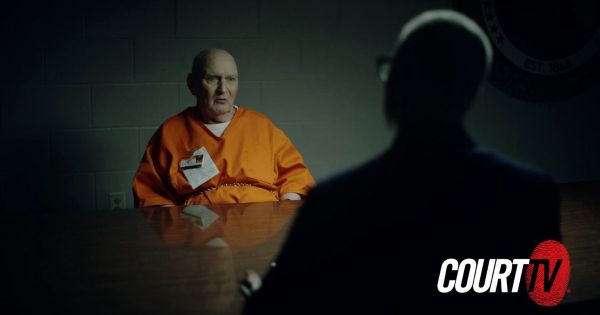David Scott: I wasn’t as immersed in the true crime genre, so my points of reference are more rooted in pop culture—shows like Mindhunter and movies like Silence of the Lambs. Those are the inspirations for me in my particular role of walking into the world of a Supermax prison and sitting three feet away from people who have done things that make my skin crawl.
When Ethan and I were trying to figure out how we would do a show that could break through in the crowded true crime field, we decided to leverage my background as an interviewer. He and I were part of the time that relaunched Nightline in 2006, and many of the lessons we learned then we also applied to this program.
Nelson: Some of the original producers were actually pitching the alternative shows because they weren’t sure our approach was going to work. But what’s interesting now is that some of these killers have heard about the show and we’re starting to get subjects reaching out to us who want to face David! Which they might regret. [Laughs]
To that point—and I know this sounds like an odd question—what are you looking for in a killer?
Nelson: We’ve learned that we need to cast a very wide net, because some states allow cameras in prison, and some states don’t. And then it’s about looking at what’s remarkable about each case and whether or not they have these twists and turns to them. But even some of the cases that seem cut and dried can have something underneath them. David and I talk a lot about our unique way into each one.
Scott: One of the things that I think makes this show so compelling is that the stakes are incredibly high, whether we’re talking to a “run of the mill” domestic murderer or an elaborate serial killer. If you embrace that, you can bring a lot of meaning to these stories.
It’s interesting: at one point, Gary Hilton pulled out of our interview agreement after he watched an episode about a more routine case and was appalled that we would put him in the same series as a common domestic murderer. I was able to talk him back into doing the show by pointing out that maybe he sees that as a more common-variety homicide, but the consequences are no less serious for the victim, the family, and the community.
The Trump administration has resumed federal executions and we’ve seen individual states step up executions through methods up to and including firing squads. How has that impacted the subjects you’re speaking with? In a very real sense, these interviews could be the final testament for those on death row.
Scott: It’s a good question and Gary Hilton is a good example. He makes it very clear in the interview that this was his way of sort of leaving a final record. He had never talked about his crimes before even though he’d been asked many times. But after 17 years on death row and as a 78-year-old with congestive heart failure, he wanted to leave a lasting record. There are lots of questions to be asked about the death penalty and the way it is administered that are beyond the scope of our program. But I do think it raises the stakes for these killers.


